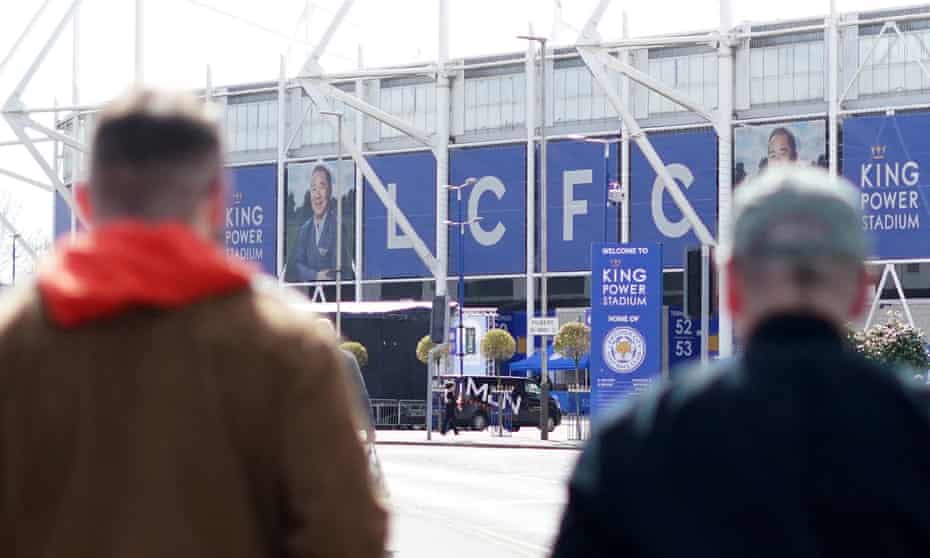The crackdown on gambling ads is too little and too late for my husband
A promised review into our outdated gambling laws has been repeatedly delayed. We need action before more lives are lost

After my husband, Luke, took his life, I promised to take our son to watch every Leicester City FC home game. It had been a father and son tradition, and I wanted to carry it on. But every time we went, we couldn’t escape the gambling adverts around the stadium. The word “bet” was everywhere, flashing at us like a command. It was a reminder for my son of his dad’s gambling addiction, and I watched as he shrank into his seat. We have not been back.
Gambling adverts are everywhere – not just around football grounds and on players’ shirts, but on the radio and on the way to school, magnified on billboards, in magazine inserts, in so many TV ad breaks and all over the internet. There is nowhere to hide. The full normalisation of gambling as a fun and risk-free activity is completed by the long list of celebrities who front those ads. From José Mourinho claiming he’s “the Special One” because he won online, Ray Winstone bellowing at you to bang a bet on, and Keith Lemon offering you a so-called “free bet”, they are hard to ignore.
The Committee of Advertising Practice recently announced that, from October, it will ban UK gambling ads featuring celebrities, sportspeople and social media influencers who would be likely to appeal to children.
This is a welcome step, but nowhere near enough. Before Luke died, he talked about the relentlessness of gambling adverts. I didn’t know then that he was struggling with a life-threatening illness brought on by the addictive products those adverts sold. A 2021 Public Health England report estimates that there are more than 400 gambling-related suicides in England every year – more than one a day. And with more than 55,000 children addicted to gambling in the UK, the next generation is being groomed.
The way the gambling industry advertises is despicable. It claims to promote “safer gambling” while using every trick to encourage people to bet. The responsibility is always on the gambler, with safety slogans such as “When the fun stops, stop” or “Take time to think”, but never anything on the real dangers of gambling (“Gambling kills”), never highlighting the highly addictive nature of online casino games, in-play betting, or predatory gambling industry practices such as VIP schemes and free bets and bonuses.
Luke was drawn in by these “free bets”. These offers entice people to sign up to sites with free credit to spend, free spins, or odds that seem too good to be true. When Luke tried to stop, it was these free bets that pulled him back into a gambling nightmare in the weeks before he died.
Industry lobbyists say gambling advertising does not cause people to gamble, citing a “flawed” University of Liverpool study to back this up. This is premium-grade gaslighting. Why would the UK gambling industry spend £1.5bn a year on advertising if it was having no effect? It’s because 86% of online betting profits come from just 5% of customers – those addicted or at risk. If you are bankrupting and killing your best customers, you must replace them.
Stopping celebrities from promoting gambling now feels like a half-baked measure, sold to us to avoid what really needs to happen. We are close to what could be the biggest shake-up of our gambling laws, with the 2005 Gambling Act currently under review. That legislation, which opened the floodgates to the dangerous levels of advertising we see today, came into force in 2007 – it was drawn up before the first iPhone came to market. With most gambling and gambling advertising now happening online, our laws are hopelessly out of date.
There has been delay after delay in releasing the review white paper that will set out the proposed changes. Right at the top, along with an end to “free bets”, needs to be an end to all gambling advertising. Every day of delay is another life lost. More than 500 people have already died because of gambling since the review began, and one of those was my husband. This is why I’ve set up a petition calling on the gambling minister, Chris Philp, to publish the white paper now.
Just as the tobacco industry resisted a ban on smoking ads, the gambling industry is lobbying hard to keep the status quo. Cigarette firms argued that Formula One would not survive without their ad revenue, which was wrong, and now betting firms say football can’t live without gambling advertising. This too is, of course, nonsense – there are now dozens of clubs surviving without it and campaigning against it. Football was fine before 2007 and it will be again.
One day I hope I can take my son to see the football, travel with him in the car, sit with him watching TV, and let him scroll the internet or chat to his friends on social media without worrying he is being targeted by a gambling firm. I owe it not just to him, but to Luke, to do my best to ensure this white paper puts an end to gambling advertising.
-
Annie Ashton campaigns to raise awareness of gambling addiction
-
If you’ve been affected by gambling-related suicide, contact Gambling with Lives on support@gamblingwithlives.org. In the UK, Samaritans can be contacted on 116 123 or email jo@samaritans.org
